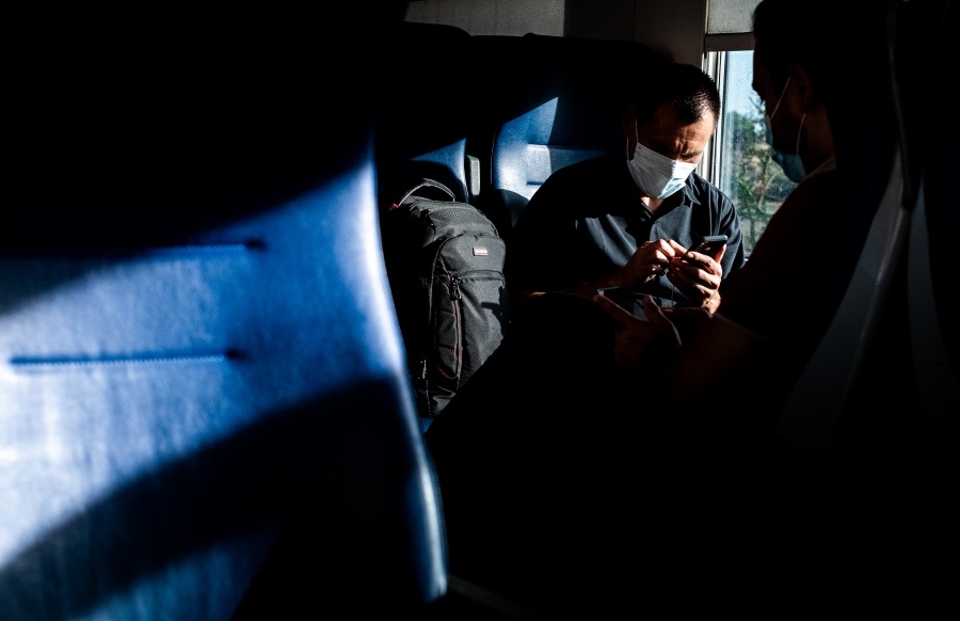The College of New Jersey's Social Epidemiology Lab (SEL) has found significant connections between COVID-19 deaths and social capital and vulnerability at state levels.

States with lower levels of social capital and high levels of vulnerability tend to fare worse in terms of COVID-19 mortality...
EWING, NJ November 29, 2021 – Although vaccination rates are rising and the Centers for Disease Control (CDC) now endorses boosters for all adults, the United States recently passed 750,000 COVID-19 deaths. Amid new winter spike warnings from some experts, students and faculty at the Social Epidemiology Lab (SEL) in the School of Nursing, Health, and Exercise Science (SNHES) at The College of New Jersey (TCNJ) have found a compelling connection between pandemic mortality and social capital and vulnerability across the nation.
“We identified that almost 57% of the variance in the mortality rate distribution was explained by social capital and vulnerability. States with lower levels of social capital and high levels of vulnerability tend to fare worse in terms of COVID-19 mortality than those with greater social capital,” says Associate Professor of Public Health and SEL founder Dr. Carolina Borges. “Future studies should investigate possible interventions to improve social capital at the community level.”
Social capital is a set of shared values and networks of relationships that enable communities to function effectively. The United Nations cites social capital as a “non-material core asset to achieving” sustainable development goals.
The study used open access data from all 50 states and Washington D.C. to investigate the relationship between social capital and COVID-19 mortality in the US from January 2020 to February 2021. SEL gathered information from: Data Centers for Disease Control and Prevention, United States Congress Joint Economic Committee social capital project, United States Department of Agriculture, Kaiser Family Foundation, Statista, USAFacts, Financial Reserve Economic Data (FRED), Migration Policy Institute and Census databases. From these collections, researchers identified several relevant COVID-19 social risk factors and comorbidities, constructed a novel social vulnerability index including socioeconomic and health domains, and mapped out pandemic mortalities across the US.
TCNJ Exercise Science alumnus, Matthew Conlon, Class of 2021, explains his experience as a student researcher on this project, saying, “I wanted to go to medical school, but due to COVID-19, it was more difficult to access research labs. This study was a great opportunity to get some real-world experience working with a leading public health scholar and statistician.”
Borges launched the SEL in 2020 with the goal of solving real-life public health problems with interdisciplinary teams. “I am fortunate to work with 9 wonderful research assistants and one senior statistician. Seven of my research assistants are TCNJ undergraduates and two are alumni. This important finding resulted from empowering students and fostering creativity among young professionals.”
TCNJ’s School of Nursing, Health, and Exercise Science Dean Carole Kenner remarks, “Dr. Borges and SEL’s results are another example of how the school’s teacher-scholar model elevates learning to address worldly issues. Our faculty are true leaders in their fields and guide students to think beyond the campus, providing a unique and rewarding educational experience like no other.” The school consistently ranks as one of the top five best nursing schools in New Jersey.
TCNJ’s School of Nursing, Health, and Exercise Science educates aspiring health professionals to become future leaders across the healthcare industry. Faculty work closely with local healthcare partners to provide students with applicative skills and foundational knowledge. The nationally acclaimed school is dedicated to preparing individuals—through programs in nursing, public health, exercise science, and physical education teaching—for the many rewards of guiding people, communities, and populations toward improved health outcomes.
Contact Information
Crothers Consulting | info@crothersconsulting.co | (800) 831-3840